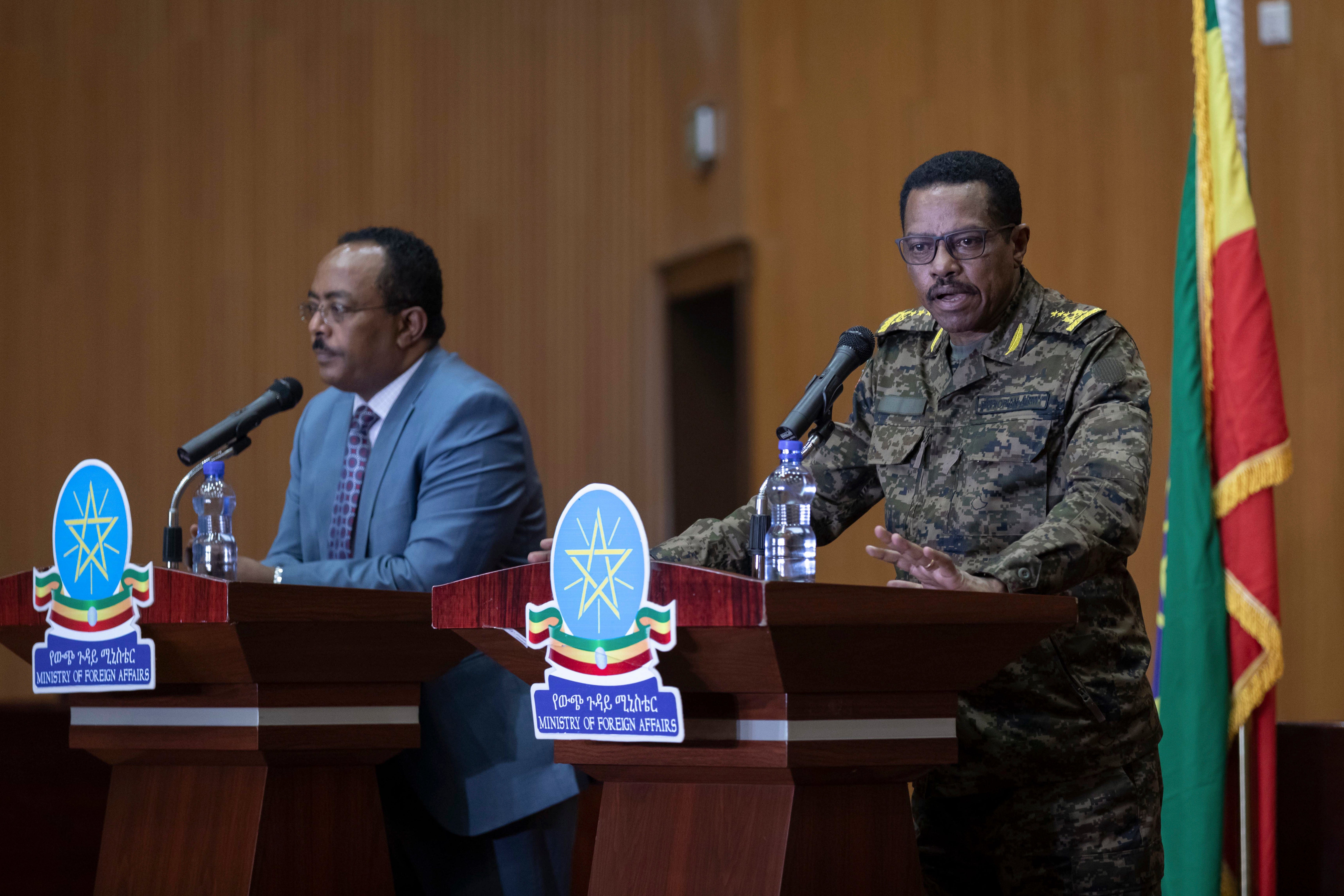Ethiopia hints at Tigray military move; cease-fire in doubt
Ethiopia’s government says its military could re-enter the capital of its embattled Tigray region within weeks, calling into question the unilateral cease-fire it declared in Tigray just days ago

Ethiopia’s government says its military could re-enter the capital of its embattled Tigray region within weeks, calling into question the unilateral cease-fire it declared in Tigray just days ago.
Redwan Hussein, spokesman for the Tigray emergency task force, spoke to reporters on Wednesday in Ethiopia’s first public remarks since its soldiers retreated from the Tigray capital and other parts of the region on Monday in a dramatic turn in the nearly eight-month war.
The Tigray forces that have retaken key areas after fierce fighting have rejected the cease-fire, telling The Associated Press it was a “sick joke’ and vowing to chase out Ethiopian forces and those of neighboring Eritrea
There will be no negotiations with Ethiopia until communications, transport and other services that have been cut or destroyed for much of the war are restored, the Tigray forces' spokesman, Getachew Reda, told the AP on Wednesday.
“We have to make sure that every inch of our territory is returned to us, the rightful owners,“ Getachew said, adding that Ethiopian forces are still fighting to regain territory and Eritrean forces still control a “significant part” of the region.
The Tigray spokesman also issued a warning to the long-time president of Eritrea, Isaias Afwerki who has long been an enemy of Tigray’s leaders and sent soldiers into Tigray to support Ethiopian forces. Witnesses have accused the Eritrean soldiers of some of the worst atrocities in the conflict.
“We will do anything in our power make sure that Isaias will never be a threat again,” Getachew said.
Officials for Eritrea, described by human rights groups as one of the world’s most repressive nations, have not responded to requests for comment. While witnesses saw Eritrean soldiers retreat from the key Tigray towns of Shire, Axum and Adwa on Tuesday, it is not clear whether Eritrea will adhere to the cease-fire.
With the war likely to continue, the fate of more than 1 million Tigrayans in hard-to-reach areas is in question as Ethiopia and authorities on the ground are accused of blocking access for the delivery of aid. Phone and internet services remain cut.
Ethiopia has said it declared the cease-fire in part on humanitarian grounds, but said it would end once the crucial farming season in Tigray is over, which means September.
Ethiopian Lt. Gen. Bacha Debele on Wednesday said the military had to move forces from Tigray to face “bigger threats" and referred to the border, but denied the possibility of a conflict with neighboring Sudan over disputed lands.